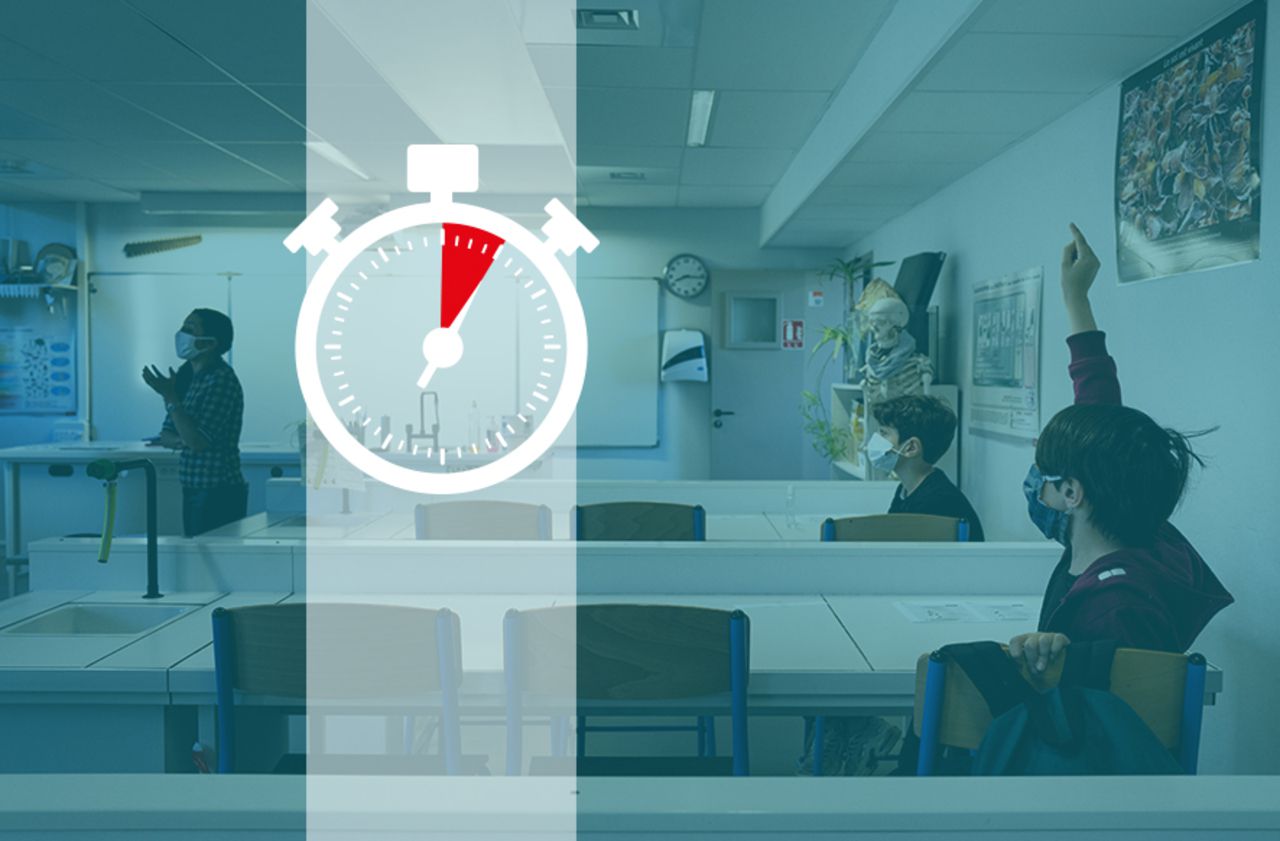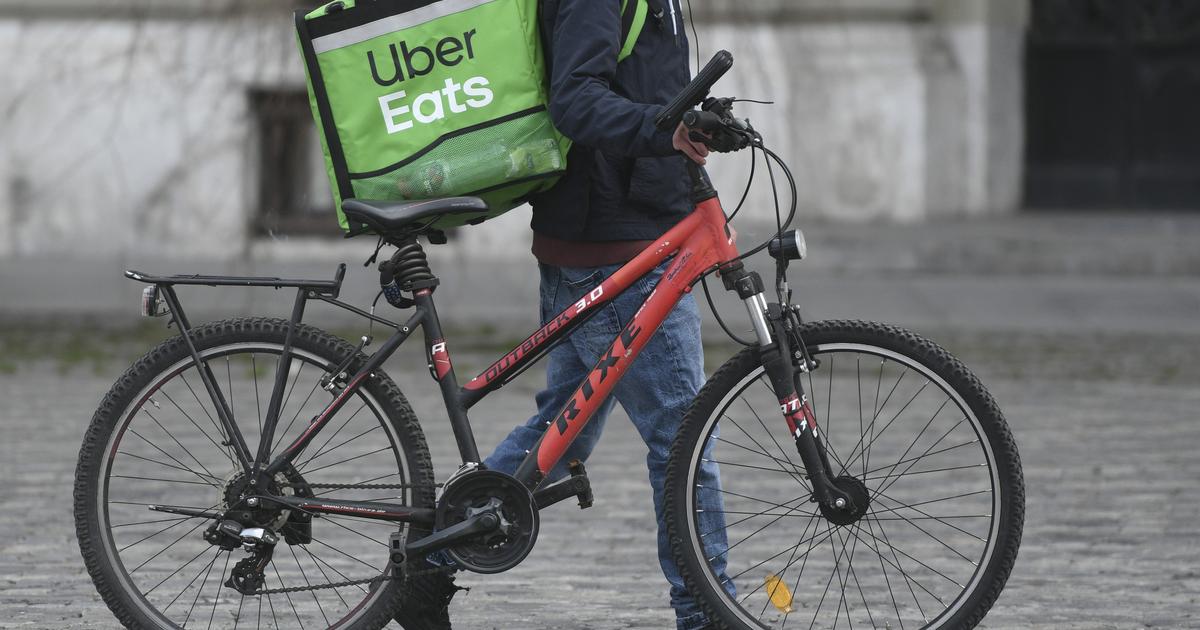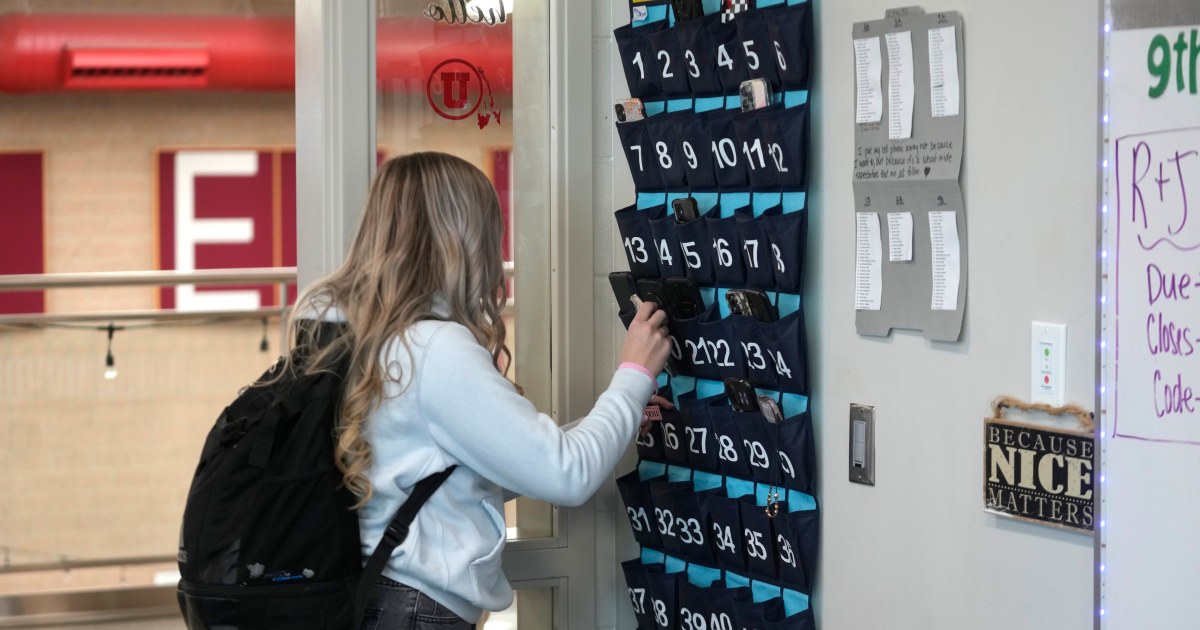It is the turn of the colleges to reopen their doors this Monday, May 18 with severe restrictions. Only establishments located in green classified departments are concerned, and only for the 6 th and 5 th classes.
Nursery schools and primary schools can welcome students since May 11, and this throughout the national territory. A return to school that took place gradually, offering parents the opportunity to keep their children at home.
However, not everything went as planned. Some schools finally had to keep doors closed on Monday, a week after the post-consolidation recovery. The reason: suspicion of Covid-19, and even the detection of several dozen proven contaminations. Update on the situation.
How many schools are affected?
While several cases have been declared in recent days, with the announcement of the closure of several establishments, the Minister of National Education Jean-Michel Blanquer was responsible for drawing up the inventory on Monday. In total, some 70 cases of contamination have been identified in the 40,000 schools which have reopened.
These cases of contamination can concern teachers as well as students, but also staff working in these establishments. "Almost every time these are cases that arise outside of school," assured Jean-Michel Blanquer this Monday morning on RTL.
Among the cases identified to date, are establishments located in Toulon, Marseille, Nice, Montpellier, Dijon, Poitiers, Tours, Angers, Joinville-le-Pont, Soyaux, La Couronne, Château-Salins, Mialet, Rochecorbon or Sorges -and-Ligueux, to name a few. Contacted, the ministry had not transmitted to us the precise list of the establishments concerned at the time when we publish this article.
What surveillance is implemented in the establishments?
To date, everything relies on the vigilance of all staff and facility managers to detect suspicious cases. The health protocol implemented by the government clearly mentions the detection of so-called "suspect" cases. For example, school heads are asked to "remind everyone who is symptomatic (fever or feeling of fever, cough, breathing difficulties) not to go to their place of work".
“We started preparing for the start of the school year last Monday. On Thursday, a teacher from Célestin Freinet elementary school presented with simple flu-like symptoms. He was asked to go home and go see his doctor, explains François Nebout, mayor of Soyaux (Charente). Test results, which arrived this weekend, have confirmed covid-19 contamination. During a meeting in the presence of the teachers and the mayor of the commune, the ARS representatives explained that there was no particular sign of any spread of the virus within the establishment.
Newsletter - The essentials of the news
Every morning, the news seen by Le ParisienI'm registering
Your email address is collected by Le Parisien to allow you to receive our news and commercial offers. Find out more
Other cases raise more questions, as in Château-Salins, in Moselle. The teacher tested positive actually found himself in contact with the 40 children who had returned to school last week. Other cases concern non-teaching staff, as in Rochecorbon in Indre-et-Loire. An employee of a provider from the town, who had participated in the meetings to prepare for the meeting, had made himself known last week for having been in contact with a person tested positive. In Nice and Roubaix, these are children who tested positive.
How are these cases managed?
When a suspected case is detected in an adult, this must be immediately isolated, specifies the health protocol. Wearing a mask is then compulsory if return home is not immediately possible.
The person is then invited to leave the school and to consult his doctor as soon as possible. It is the latter who assesses whether or not it is necessary to carry out a PCR test, which makes it possible to note the presence or not of the virus in the body. In the event of a positive test, the patient must be placed in isolation, if his condition does not require hospitalization, in order to limit contact as much as possible. The health authorities are informed of the detection of a positive case and proceed to the search for all contact cases, including within the establishment. At school, and after respecting a deadline of a few hours after the departure of the suspect, careful cleaning of the rooms occupied by the latter must be carried out.
What decisions have been made?
In all of the cases recorded to date, the health authorities did not even wait for the results of the tests before proceeding to close the establishments deemed to be at risk. The decisions vary, however, in their scale according to the municipalities. In Roubaix, all of the city's establishments closed their doors after a child was infected.
"In Soyaux, we only closed the establishment in which contamination was found," said the mayor of the town, also a doctor and who himself contracted the virus three days after the first round of municipal elections. . These closure decisions are taken in consultation with the prefecture and the health authorities.
When the tests return negative, reopening decisions are made on a case-by-case basis. In Le Mans, the socialist mayor Stéphane Le Foll had decided to close two establishments after the appearance of two suspected cases. The tests did not ultimately reveal any contamination. The establishments were able to reopen their doors this Monday morning. "I share the need to deconfinate the country," he explains to the Parisian. I trust the health authorities, who tell us that the risks of spreading the virus are minimal as long as all the precautionary measures are observed. "
Will schools close at the slightest suspicion?
For the Minister of National Education, the closure of establishments demonstrates nothing other than "the application of the strict health protocol".
Some mayors who have had to manage suspicions of Covid do not, however, hide a certain reservation with regard to the protocol implemented in the schools. "Even if life should not stop, I wonder if we could not have done better to wait for September," says François Nebout. We had a meeting with the ARS, the teachers were there and I felt that they were extremely worried. In my opinion, screening tests should be multiplied or even generalized. I grabbed the Covid, I can tell you that I was very shaken. "
To be satisfied with the appearance of symptoms in fact leaves uncertainty over the non-detection of so-called asymptomatic cases, potentially numerous. In Joinville-le-Pont, Mayor Olivier Dosne had launched a screening campaign for city officials on a voluntary basis. Of the 110 people tested, two agents tested positive, both asymptomatic.
Stéphane Le Foll does not call for the generalization of tests. "Would we be ready to do it?" I'm not even sure, he wonders. At Le Mans, it took three days for the test results to come back to us. The resumption of school should not be paralyzed at each suspicion. What I did find, however, was that no one knew what to do when the suspicion arose. It was I who decided to close the schools concerned. But we will not be able to do this whenever there is a doubt, we must clarify the implementation of the health protocol and remind all staff not to travel especially in case of symptoms. "












